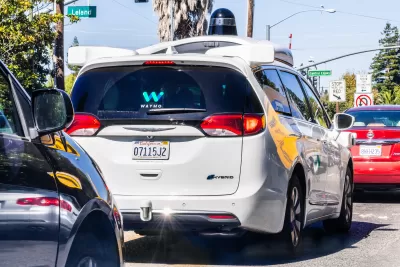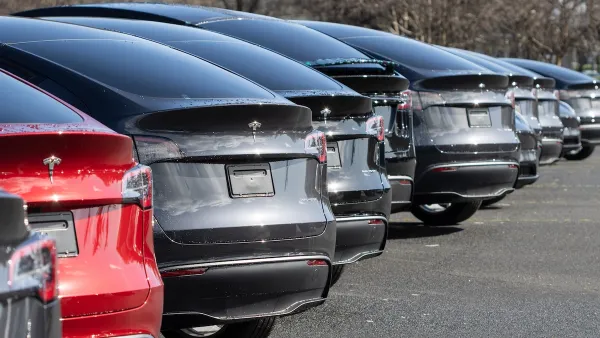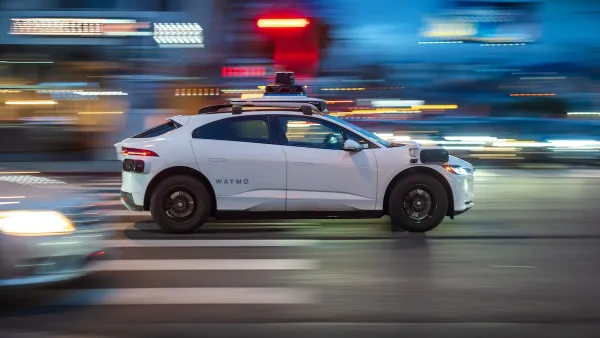As fleets of autonomous cars make their way onto city streets, the need to effectively regulate the technology is becoming more urgent.

Amidst the high-profile stories about Tesla’s self-driving cars, a quieter autonomous revolution is taking place on real city streets as companies like Cruise and Waymo introduce more and more robotaxis to the streets of San Francisco, Phoenix, and beyond. But unsurprisingly, writes Benjamin Schneider in MIT Technology Review, governments have been slow to catch up to the reality that robotaxis are here, now.
“I’ve come to believe that most people, including many powerful decision makers, are not aware of how quickly this industry is advancing, or how severe the near-term labor and transportation impacts could be,” Schneider says, adding, “Legal frameworks remain woefully inadequate: in the Golden State, cities have no regulatory authority over the robotaxis that ply their streets, and police legally cannot cite them for moving violations.”
Autonomous taxis have their perks, too. “The mere fact that these vehicles are programmed to follow traffic laws and the speed limit automatically makes them feel like safer drivers than a large percentage of humans on the road.” But their rapid proliferation calls for a discussion of the broader potential repercussions of the technology. For example, “This technology could make automotive transportation so cheap and easy that people decide to make more trips by car, increasing congestion and undermining public transportation. Traffic could be made even worse, San Francisco officials fear, by the many robotaxis double-parking as they await passengers, lacking the situational awareness of where and for how long it’s appropriate to stop.” Not to mention questions of labor or equity.
For Schneider, this is a change that must be addressed quickly. “It’s high time for the public and its elected representatives to play a more active role in shaping the future of this new technology.”
FULL STORY: Robotaxis are here. It’s time to decide what to do about them

Planetizen Federal Action Tracker
A weekly monitor of how Trump’s orders and actions are impacting planners and planning in America.

Maui's Vacation Rental Debate Turns Ugly
Verbal attacks, misinformation campaigns and fistfights plague a high-stakes debate to convert thousands of vacation rentals into long-term housing.

San Francisco Suspends Traffic Calming Amidst Record Deaths
Citing “a challenging fiscal landscape,” the city will cease the program on the heels of 42 traffic deaths, including 24 pedestrians.

Amtrak Rolls Out New Orleans to Alabama “Mardi Gras” Train
The new service will operate morning and evening departures between Mobile and New Orleans.

The Subversive Car-Free Guide to Trump's Great American Road Trip
Car-free ways to access Chicagoland’s best tourist attractions.

San Antonio and Austin are Fusing Into one Massive Megaregion
The region spanning the two central Texas cities is growing fast, posing challenges for local infrastructure and water supplies.
Urban Design for Planners 1: Software Tools
This six-course series explores essential urban design concepts using open source software and equips planners with the tools they need to participate fully in the urban design process.
Planning for Universal Design
Learn the tools for implementing Universal Design in planning regulations.
Heyer Gruel & Associates PA
JM Goldson LLC
Custer County Colorado
City of Camden Redevelopment Agency
City of Astoria
Transportation Research & Education Center (TREC) at Portland State University
Jefferson Parish Government
Camden Redevelopment Agency
City of Claremont





























